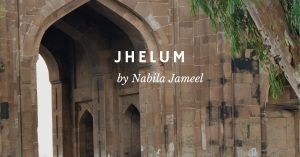The Name of God came haunting down the hall
and dazzled all our eyes and ears and
hearts, and made us
swoon into this hard physical life,
and we’ll be wakened and called back
and then we’ll leave this world as
things departing from shadows
leave their shadows in heaps like
old clothes at the
door
through which we’ll all depart to go back to that
chanting school, those corridors of
pure reverberation through
pine woods, mountain cloud, egrets hovering in an
updraft, sunlight on
rock, sun twinkle on
stream gush, that exquisite
Name of God again, repeated by God’s own
speech on the tongue of everything.
The Name of God foghorns
out at sea where
blackened darkness deepens within darkness.
The Name of God suspended in amoebas hovering just below
the surface tension of a moonlit lake.
The Name of God in the first movements of an eaglet inside its
high shell on a cliff beaten by
wind, its brother and sister eaglets
starting to stretch inside
their shells at exactly the
same time.
The Name of God in the high wind beating against them.
The Name of God in rigging out at sea
the high wind beats against.
The Name of God in the audible beats that
accompany the wind, in the
silent beats as well as the
ones sounded out, the lapping as well as the
silence as the sea recedes.
Laughter followed by the silence of death.
The Name of God in them both.

Daniel Abdal-Hayy Moore (1940-2016) rahimahullah, was born in 1940 in Oakland, California. He had his first book of poems, Dawn Visions, published by Lawrence Ferlinghetti of City Lights Books, San Francisco, in 1964, and the second in 1972, Burnt Heart/Ode to the War Dead. He created and directed The Floating Lotus Magic Opera Company in Berkeley, California in the late 60s, and presented two major productions, The Walls Are Running Blood, and Bliss Apocalypse. He became a Sufi Muslim in 1970, performed the Hajj in 1972, and lived and traveled throughout Morocco, Spain, Algeria and Nigeria, landing in California and publishing The Desert is the Only Way Out, and Chronicles of Akhira in the early 80s (Zilzal Press). Residing in Philadelphia since 1990, in 1996 he published The Ramadan Sonnets (Jusoor/City Lights), and in 2002, The Blind Beekeeper (Jusoor/Syracuse University Press). He has been the major editor for a number of works, including The Burdah of Shaykh Busiri, translated by Hamza Yusuf, and the poetry of Palestinian poet, Mahmoud Darwish, translated by Munir Akash. He has been poetry editor for Seasons Journal, Islamica Magazine, a 2010 translation by Munir Akash of State of Siege, by Mahmoud Darwish (Syracuse University Press), and The Prayer of the Oppressed, by Imam Muhammad Nasir al-Dar’i, translated by Hamza Yusuf (Sandala). In 2011, 2012 and 2014 he was a winner of the Nazim Hikmet Prize for Poetry. In 2013 he won an American Book Award, and in 2013 and 2014 was listed among The 500 Most Influential Muslims for his poetry. You can find out more about his life’s work at https://www.ecstaticxchange.com.

This poem appears in A Kaleidoscope of Stories – Muslim Voices in Contemporary Poetry and originally appeared in the poetry collection Chants for the Beauty Feast
The poets in this anthology are seekers, teachers, artists, parents, activists and much more. From every continent and spanning generations, their collective experiences appear in verses of love, devotion, grief and healing, as they take us on a journey through cityscapes and the natural beauty of the world we live in. Through their insights and inspirations we find ourselves in London, New York, Istanbul, Fez, Damascus and Makka, in mosques and at sacred sites, in deserts, mountains, and under towering redwoods, in heart-opening moments of connection. Their poetry navigates all the seasons of life, reflecting and meditating through their outward and inward pilgrimages upon our relationships to those around us and to the Divine.




